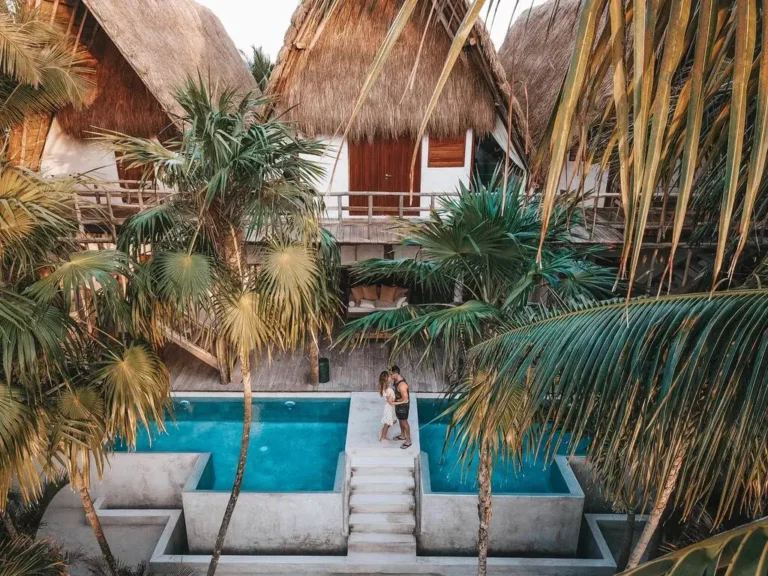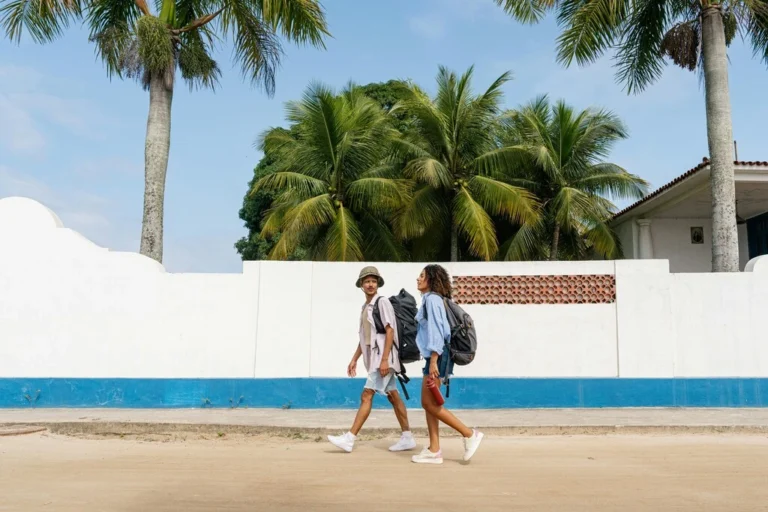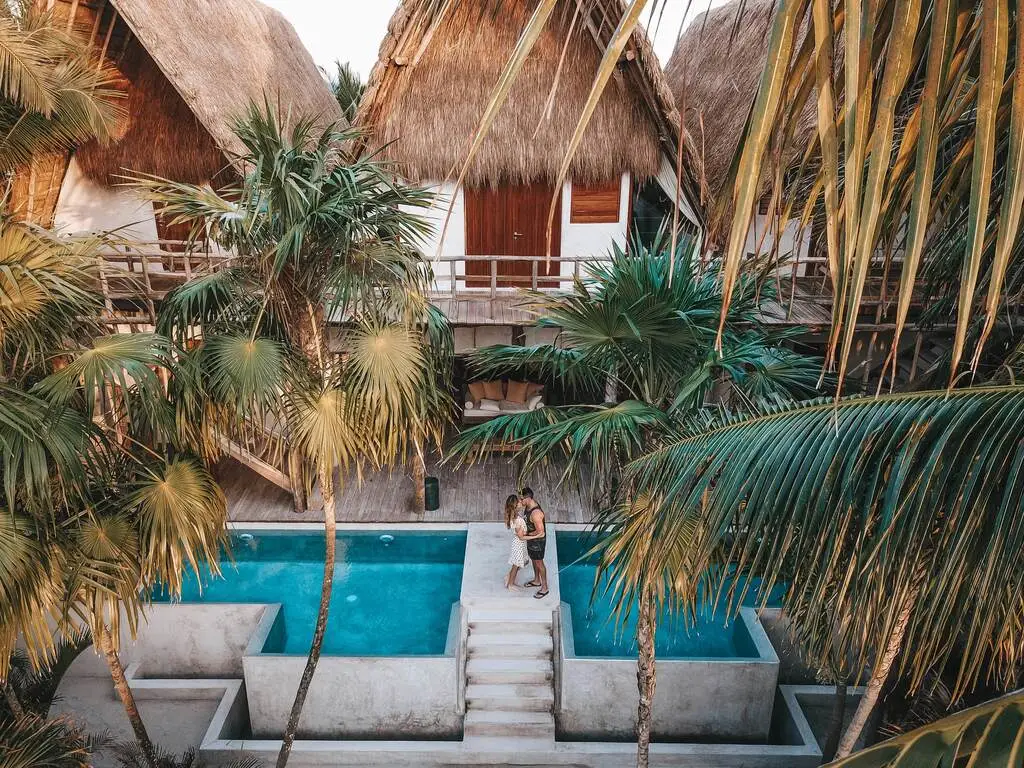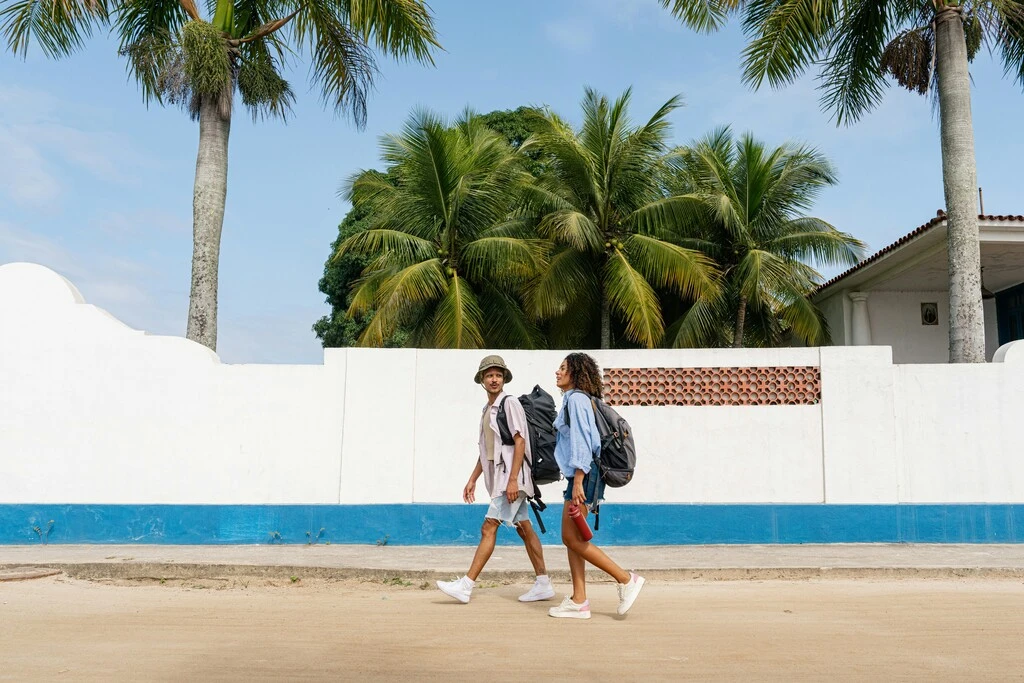Updated in January 2025!
Are you searching for your next digital nomad destination? Do you love Mediterranean cuisine and have a passion for ancient culture? If so, Greece might be the perfect place for you!
With the introduction of the Greece Digital Nomad Visa in 2021, remote workers now have the opportunity to live and work in one of the most historically rich and beautiful countries in the world.
In this article, we’ll explore everything you need to know about the Greece Digital Nomad Visa. We’ll also explore why Greece should be at the top of your list for your next digital adventure.
Ready? Let’s go!
The Greece Digital Nomad Visa in a Nutshell
The Greece Digital Nomad Visa allows non-EU citizens to live and work in Greece for up to 12 months, with the option to extend for another 12 months. You need to show proof of a job or business outside Greece and a monthly income of at least €3,500 (around $4,100 USD). After the initial period, you can apply for a long-term residency permit.
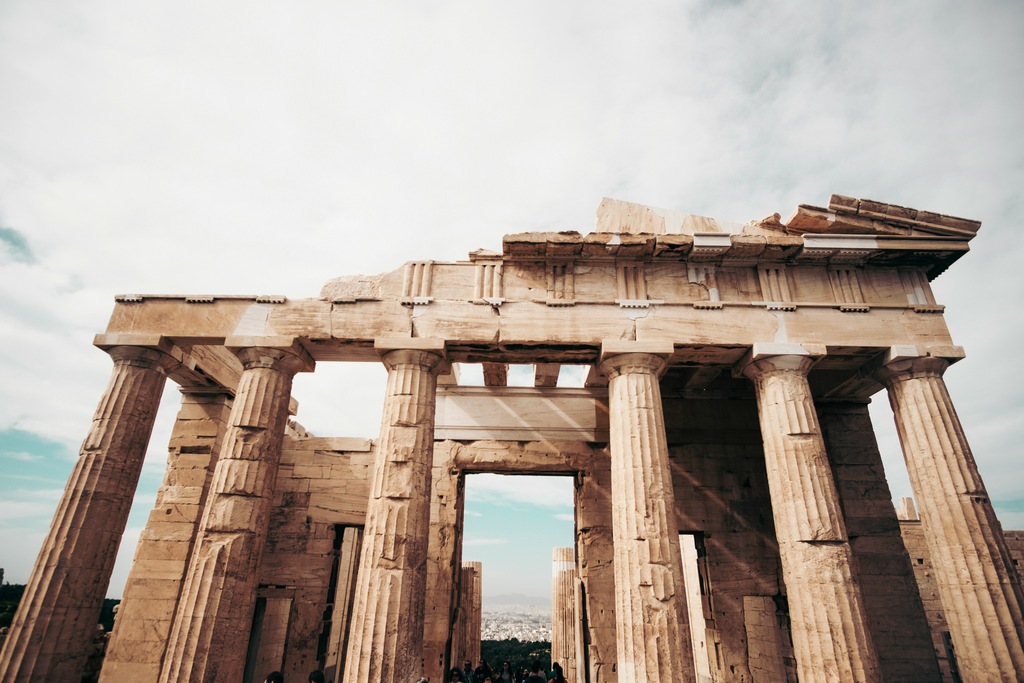
Who Can Apply?
- Any non-EU citizen who is self-employed or a dependent employee can apply for the Greece Digital Nomad Visa. Citizens of the European Union (EU), the Schengen Area, and the European Economic Area (EEA) do not need to apply for the Digital Nomad Visa because they already have freedom of movement under the Schengen Agreement.
- Applicants must work for a company or clients situated outside of Greece.
- Applicants must complete work obligations remotely, using information and communication technology like WiFi, laptops, etc.
- Employment with a company registered within Greece is not allowed. Also, businesses cannot be registered in Greece.
- Applicants must have a net income of at least €3,500/month (around $4,100 USD)
- Income of €4,200/month (around $4,900 USD) if bringing a spouse
- Income of €4,830/month (around $5,600 USD) if bringing a spouse and one dependent
- Have proof of remote work
- Have a clean criminal background
- Have proof of health insurance
- Have an address in Greece (hotel or any other accommodation)
Documents Required to Apply
- Application Form: Download from the Greek Ministry of Foreign Affairs website.
- Valid Passport: Must be valid for at least three months beyond the visa expiry date.
- Two Passport Photos: Must be in color, with a white background, and sized 2 x 2 inches (51 x 51 mm). The head must measure between 1 – 1 3/8 inches (25-35 mm) from the bottom of the chin to the top of the head.
- Proof of Employment: Submit your employment contract and a letter stating you can complete your work using technology.
- Declaration Letter: Disclose your plan to apply for the Greece Digital Nomad Visa and work remotely in Greece. State that you will not work for any Greek company during your stay and provide all relevant job/company and financial information.
- Proof of Income and Financial Means: Recent bank statements, company account statements, job contract showing your salary, or other documents. You must have a net income of at least €3,500 (around $4,100 USD) per month.
- Proof of Accommodation: Provide a rental agreement, hotel booking, or lease.
- Valid Health Insurance: Insurance must cover all costs during your travel and stay in Greece.
- Valid Return Flight Ticket: A return ticket proving you will return to your country after your stay in Greece.
- Certificate of Clean Criminal Record: Obtainable from your local police department.
- Medical Certificate: Obtainable from a recognized medical institution in your country.
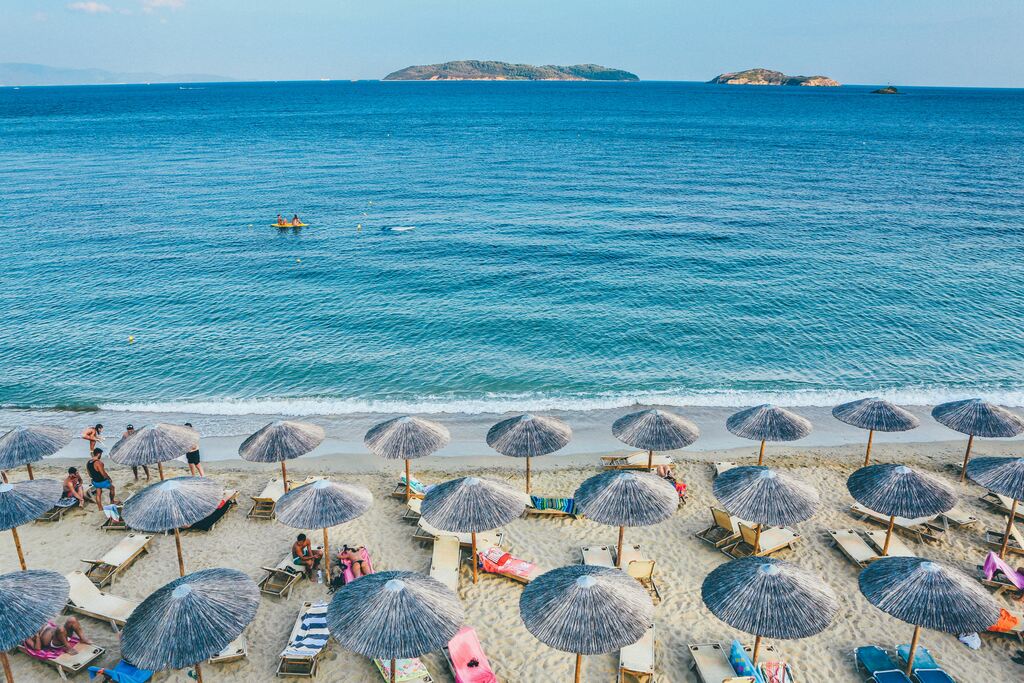
The Application Process
1. Prepare Necessary Documents: Gather all required documents as listed in the “Requirements for Greece Digital Nomad Visa” section. Ensure you have everything ready for your appointment.
2. Make an Appointment: Contact the Greek consulate or the nearest Greek embassy to schedule an appointment. They will provide detailed information on the application process. For now (August 2024), there’s no online application option.
3. Attend the Appointment: Submit your application form and required documents at the local Greek embassy or consulate where you made the appointment.
4. Complete Payment Requirements: Pay the visa application fee of €75 per applicant. This fee is non-refundable and covers the services provided by the Greek embassy.
5. Wait for an Answer: The embassy will evaluate your application within one month (even though the usual processing time is only 10 days). Once approved, the Greek Ministry of Migration and Asylum will issue your Greece Digital Nomad Visa.
6. Travel to Greece: After receiving your digital nomad visa, you are free to travel to Greece. If you are already in Greece, the application process is much easier. Just contact the one-stop service of the Greek Ministry of Migration and Asylum. You will also need to provide proof of your residence address in Greece.
Taxation of the Greece Digital Nomad Visa
If you stay in Greece for less than six months as a digital nomad, you won’t have to pay taxes. However, if your stay exceeds six months, you will be considered a tax resident and will be required to pay income taxes. Greece has a progressive income tax system:
- Monthly income below €12,000 ($13,800 USD) – no income tax
- From €12,000 to €16,000 ($13,800 to $18,400 USD) – 18% income tax
- From €16,000 to €22,000 ($18,400 to $25,300 USD) – 24% income tax
- From €22,000 to €26,000 ($25,300 to $29,900 USD) – 26% income tax
- From €26,000 to €32,000 ($29,900 to $36,800 USD) – 32% income tax
- From €32,000 to €40,000 ($36,800 to $46,000 USD) – 36% income tax
- From €40,000 to €60,000 ($46,000 to $69,000 USD) – 38% income tax
- From €60,000 to €100,000 ($69,000 to $115,000 USD) – 40% income tax
- Over €100,000 ($115,000 USD) – 45% income tax
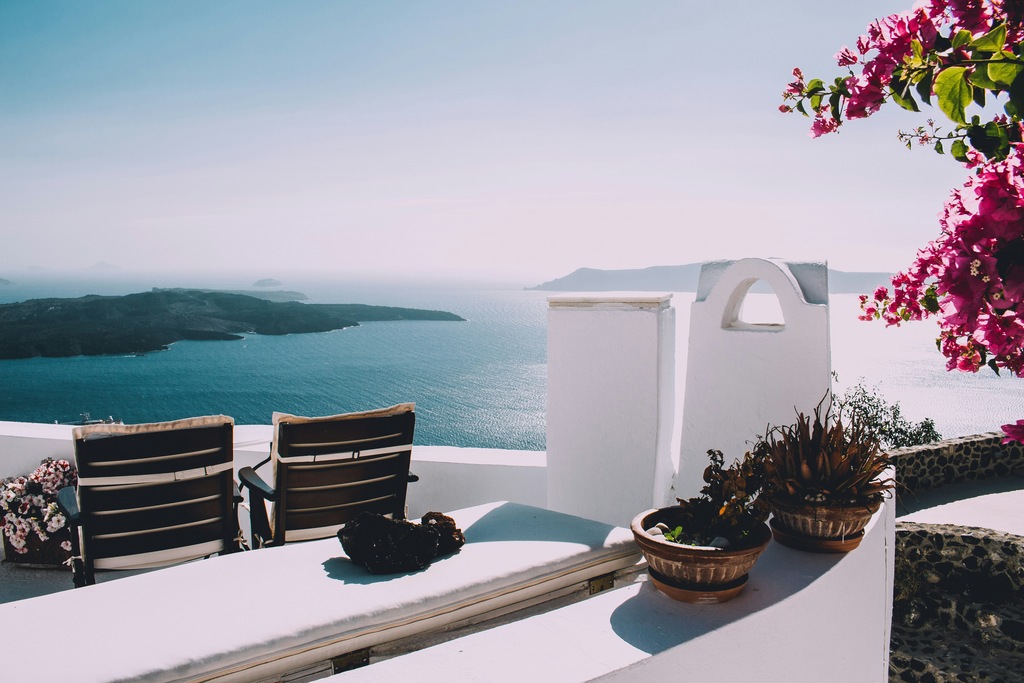
50% Greek Tax Break
Starting from January 1, 2021, digital nomads moving their tax residency to Greece can enjoy a 50% reduction in income tax for income from employment and business activities conducted in Greece.
To qualify for this benefit, the individual must:
- Not have been a Greek tax resident for five of the six years before transferring tax residence to Greece.
- Transfer their tax residence from an EU member state, an EEA country, or a country with a valid tax agreement with Greece.
- Be employed by a Greek legal entity or a permanent establishment (PE) of a foreign company in Greece.
- Declare their intention to stay in Greece for at least two years.
- Apply for the tax deduction at the greek authorities.
Why Choosing Greece as Your Next Destination?
As a kid, my family often vacationed in Greece. I loved the warm weather (especially coming from Germany), the amazing food, and how friendly everyone was. Here are all the great things about Greece:
- Rich History and Culture: Greece has countless ancient ruins, museums, and over 18 UNESCO World Heritage Sites.
- Beautiful Scenery: You will surely know the iconic white-washed buildings of Santorini from Instagram, right?! Greece offers stunning and diverse natural beauty. With over 6,000 beautiful islands, of which around 227 are inhabited, there’s always something new to explore.
- Affordable Living: Compared to many Western countries, Greece has a relatively low cost of living. On average, you can live comfortably in Greece for around €1,500 to €2,000 ($1,700 to $2,300 USD) per month, including rent, food, and everyday expenses. We’ll talk about this topic later on.
- Delicious Cuisine: Mediterranean cuisine is not only tasty but also healthy, and the Mediterranean diet is renowned for its health benefits.
- Mild Climate: Greece enjoys a Mediterranean climate with warm summers and mild winters. Average summer temperatures range from 27°C to 30°C (81°F to 86°F), while winter temperatures typically range from 10°C to 15°C (50°F to 59°F).
- Good Infrastructure: Major cities and popular islands have reliable internet connection, coworking spaces, and good public transportation. Greece’s average internet speed is around 24.92 Mbps, which is enough for most digital nomads’ needs.
- Proximity to Europe: Greece’s location makes it easy to travel to other European countries. Frequent flights and ferries connect Greece to many major European destinations, with flight times to most European capitals being under three hours.
- Welcoming Community: Greeks are known for their hospitality. The country also has a growing expat and digital nomad community.
- Safety and Stability: Greece is considered a safe country with a relatively low crime rate. According to the Global Peace Index, Greece ranks 40th out of 163 countries (as of August 2024).
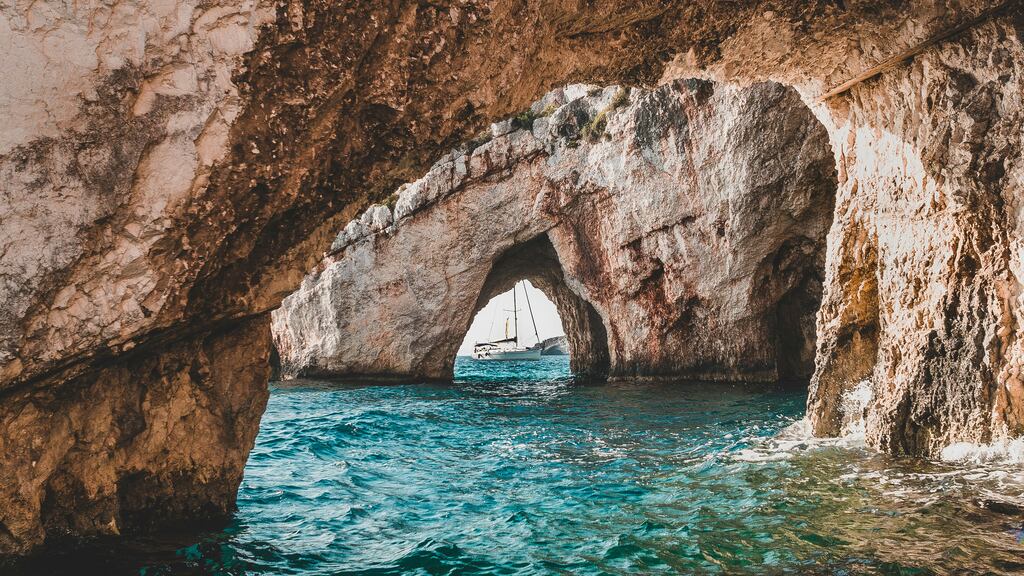
Monthly Cost of Living in Greece
Accommodation:
- Shared apartment room: €250 – €400 ($290 – $460 USD)
- One-bedroom apartment in city center: €450 – €700 ($520 – $810 USD)
- One-bedroom apartment outside city center: €350 – €500 ($410 – $580 USD)
Check out the best way to find accommodation in Greece in this article.
Utilities (electricity, heating, cooling, water, garbage):
- Monthly for 1 person: €70 – €100 ($80 – $115 USD)
Internet (60 Mbps or More, Unlimited Data, Cable/ADSL):
- Monthly: €25 – €35 ($29 – $40 USD)
Typical Daily Expenses (approximations):
Meals:
- Inexpensive restaurant meal: €8 – €12 ($9 – $14 USD)
- Mid-range restaurant (three-course meal for two): €35 – €50 ($40 – $58 USD)
Transportation:
- One-way ticket (local transport): €1.20 – €1.50 ($1.40 – $1.75 USD)
- Monthly pass (regular price): €30 – €50 ($35 – $58 USD)
Groceries:
- Liter of milk: €1 – €1.20 ($1.15 – $1.40 USD)
- Loaf of fresh white bread (500g): €0.80 – €1 ($0.93 – $1.15 USD)
- Dozen eggs: €2.50 – €3 ($2.90 – $3.50 USD)
- Local cheese (1kg): €7 – €10 ($8 – $11.50 USD)
- Apples (1kg): €1.50 – €2 ($1.75 – $2.30 USD)
- Oranges (1kg): €1.20 – €1.80 ($1.40 – $2.10 USD)
Leisure Activities:
- Fitness club, monthly fee for 1 adult: €30 – €50 ($35 – $58 USD)
- Cinema, international release, 1 seat: €7 – €10 ($8 – $11.50 USD)
Where to Stay in Greece
Athens
- Why: As the capital city, Athens offers a great mix of history, culture, and modern amenities. It has numerous coworking spaces, high-speed internet, and plenty of cafes for working remotely.
- Highlights: Coworking spaces like Stone Soup and The Cube, cultural sites such as the Acropolis and the National Archaeological Museum, and trendy neighborhoods like Kolonaki and Exarchia.
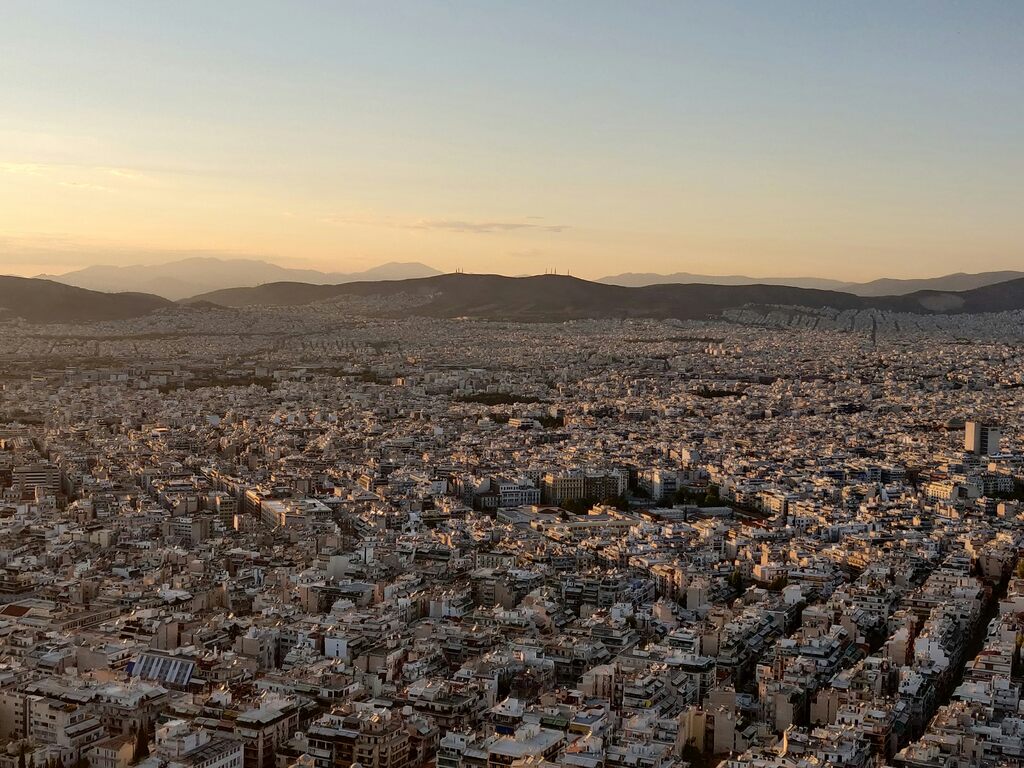
Where to Stay in Athens?
Check out these amazing hotels in Athens, or use the map below. 👇
Thessaloniki
- Why: Greece’s second-largest city is known for its youthful vibe, great food, and cultural festivals. Thessaloniki offers affordable living, a strong expat community, and a good selection of coworking spaces. It’s less hectic than Athens but still provides a dynamic urban experience.
- Highlights: Coworking spaces like Coho and OK!Thess, waterfront promenades, rich Byzantine history, and a vibrant nightlife scene.
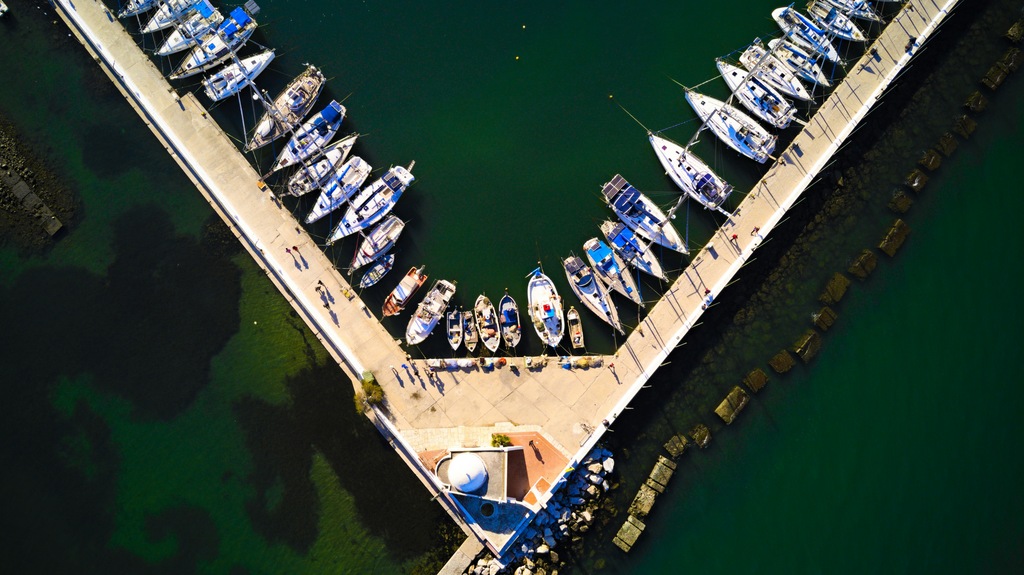
Chania (Crete)
- Why: Chania is perfect for digital nomads seeking a mix of urban life and nature. The city offers beautiful Venetian architecture, a relaxed lifestyle, and stunning nearby beaches. Crete’s reliable internet and growing number of coworking spaces make it an attractive option.
- Highlights: Coworking spaces like Workhub, charming Old Town, and access to outdoor activities such as hiking the Samaria Gorge.

Heraklion (Crete)
- Why: As the capital of Crete, Heraklion offers a bustling city experience with a strong digital nomad community. It has good infrastructure, coworking spaces, and easy access to historical sites and beaches.
- Highlights: Coworking spaces like Comeet and CapsuleT, the Palace of Knossos, and vibrant local markets.
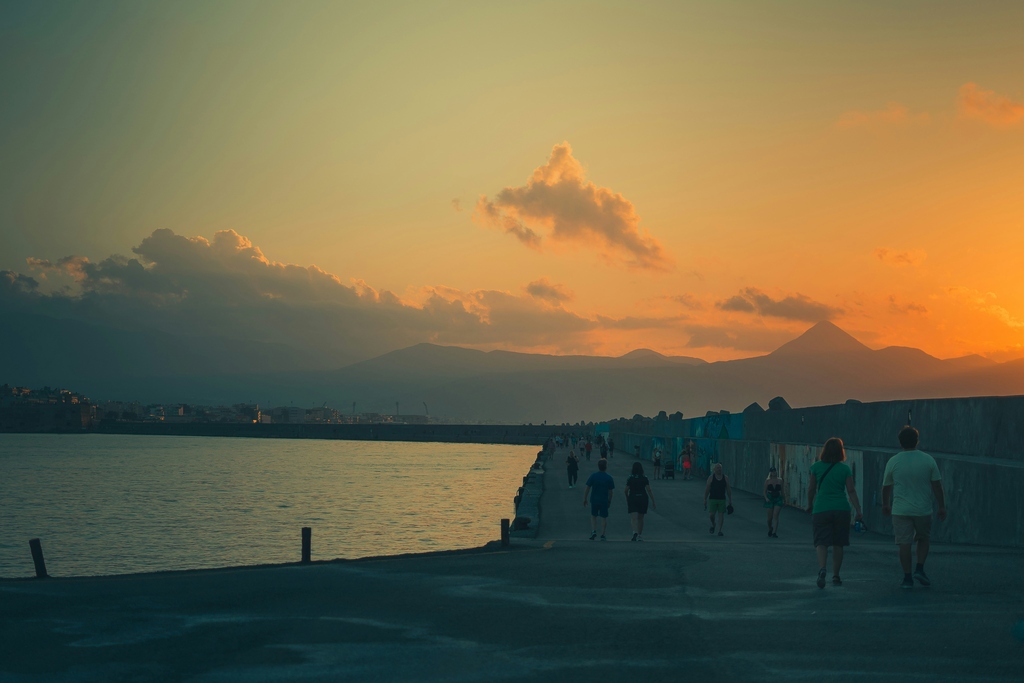
Rhodes
- Why: Rhodes combines historical charm with modern amenities. The island’s mild climate, beautiful beaches, and numerous historical sites provide a pleasant working and living environment.
- Highlights: Coworking spaces like Rhodes Project SCE, medieval Old Town, and plenty of seaside cafes for working.
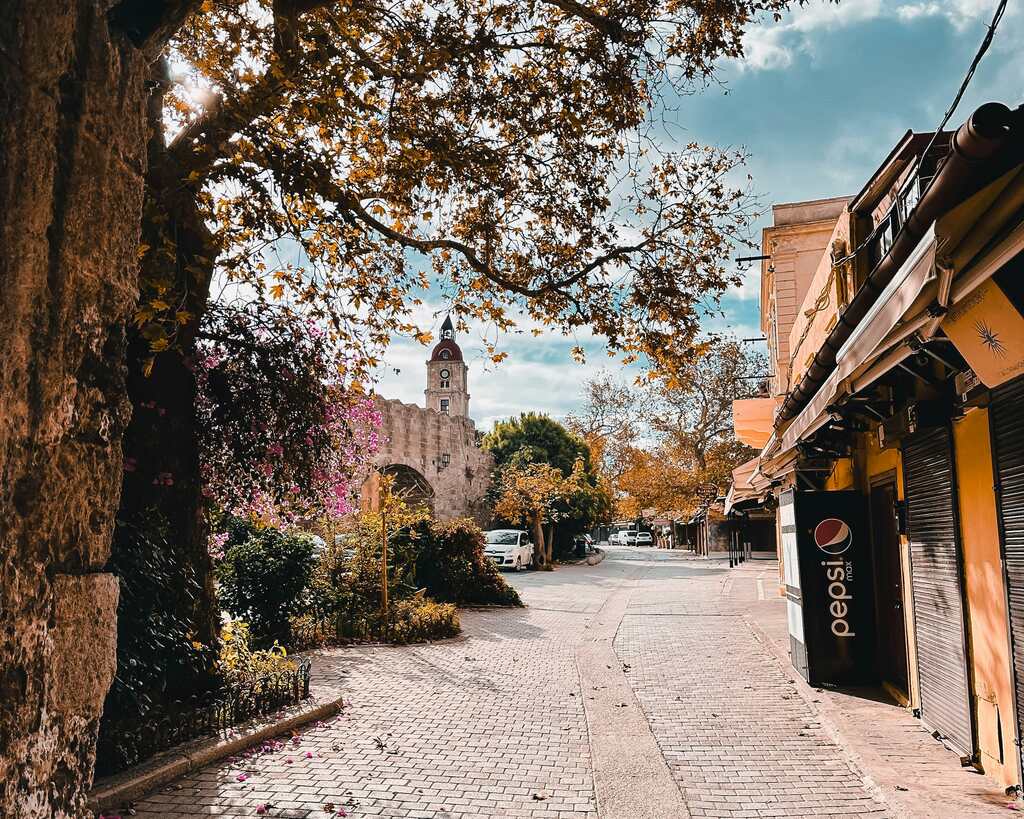
Santorini
- Why: While more touristy and expensive, Santorini offers breathtaking views and a unique lifestyle. It’s ideal for digital nomads looking for inspiration and a serene work environment. I couldn’t find any co-working spaces in the area.
- Highlights: Spectacular sunsets and charming villages like Oia and Fira.
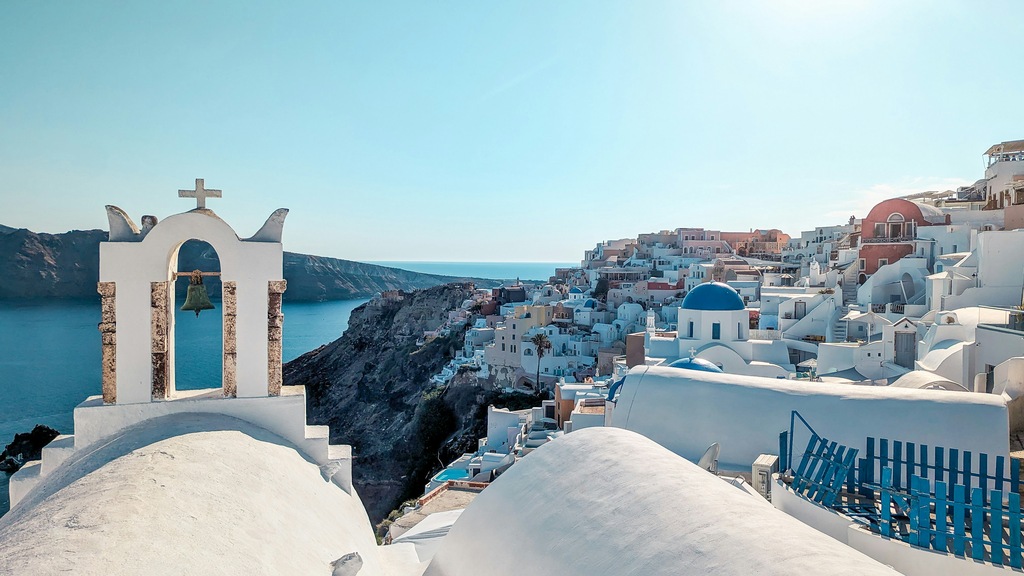
Corfu
- Why: Corfu is known for its lush landscapes, beautiful beaches, and a relaxed atmosphere. It’s less crowded than other tourist hotspots and offers a slower pace of life, which can be ideal for focused work.
- Highlights: Reliable internet, coworking spaces like Regus Corfu, and diverse cultural influences reflected in its architecture and cuisine.
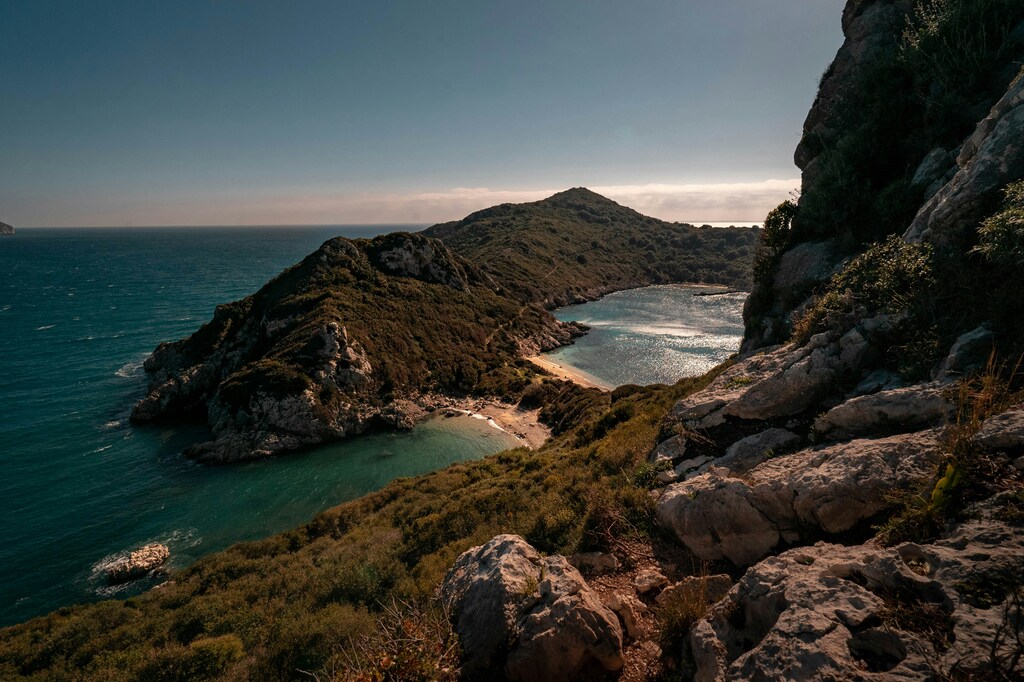
Naxos
- Why: Naxos offers a more laid-back island experience with beautiful beaches and a charming town. It’s less touristy than Mykonos or Santorini, providing a peaceful environment for work.
- Highlights: Affordable accommodations, reliable internet, and outdoor activities like windsurfing and hiking.
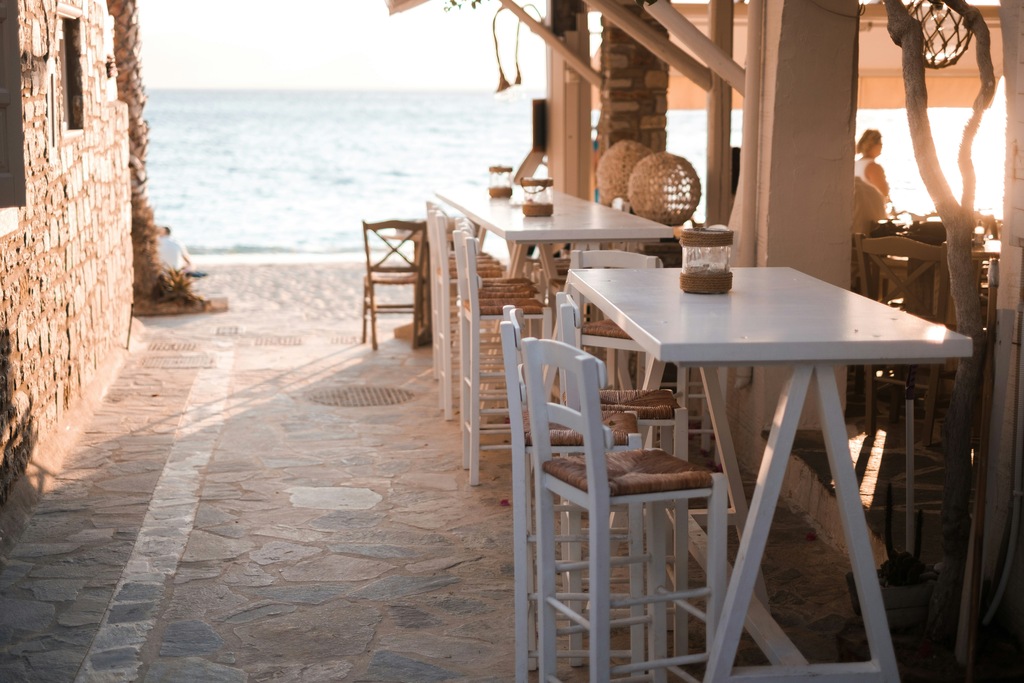
Paros
- Why: Paros is becoming increasingly popular among digital nomads for its relaxed vibe, beautiful scenery, and growing infrastructure. The island offers a mix of traditional charm and modern conveniences.
- Highlights: Cafes with good internet (no co-working spaces yet), picturesque villages, and excellent beaches.
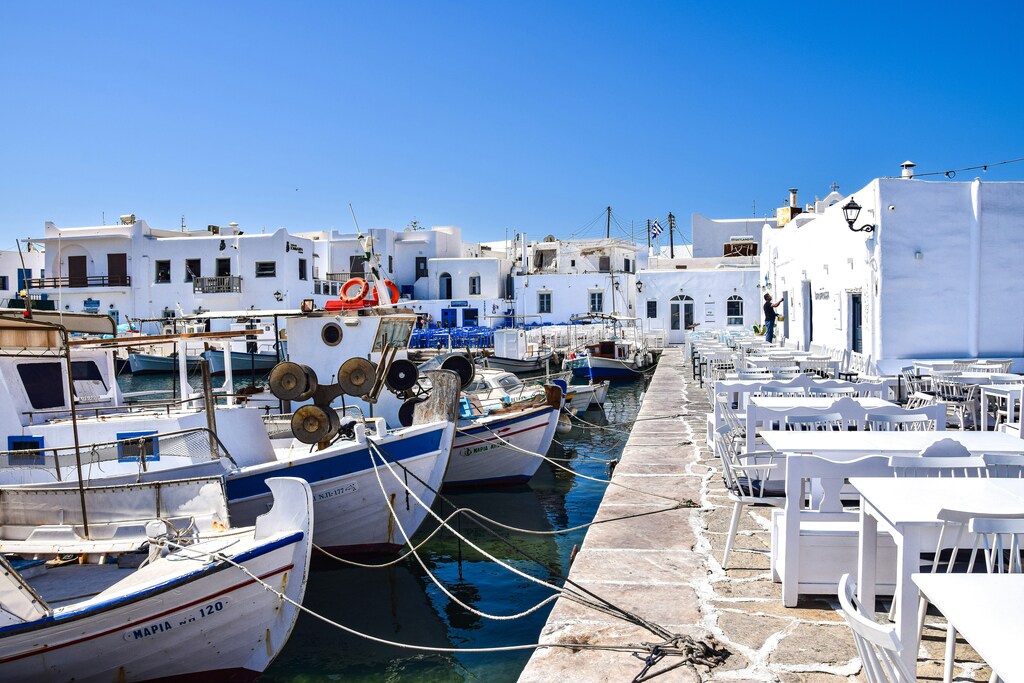
Patras
- Why: Patras is one of Greece’s largest cities, offering a blend of urban amenities and proximity to nature. It’s a hub for events and festivals, providing plenty of social opportunities.
- Highlights: Affordable cost of living, reliable internet, and cultural events like the famous Patras Carnival.
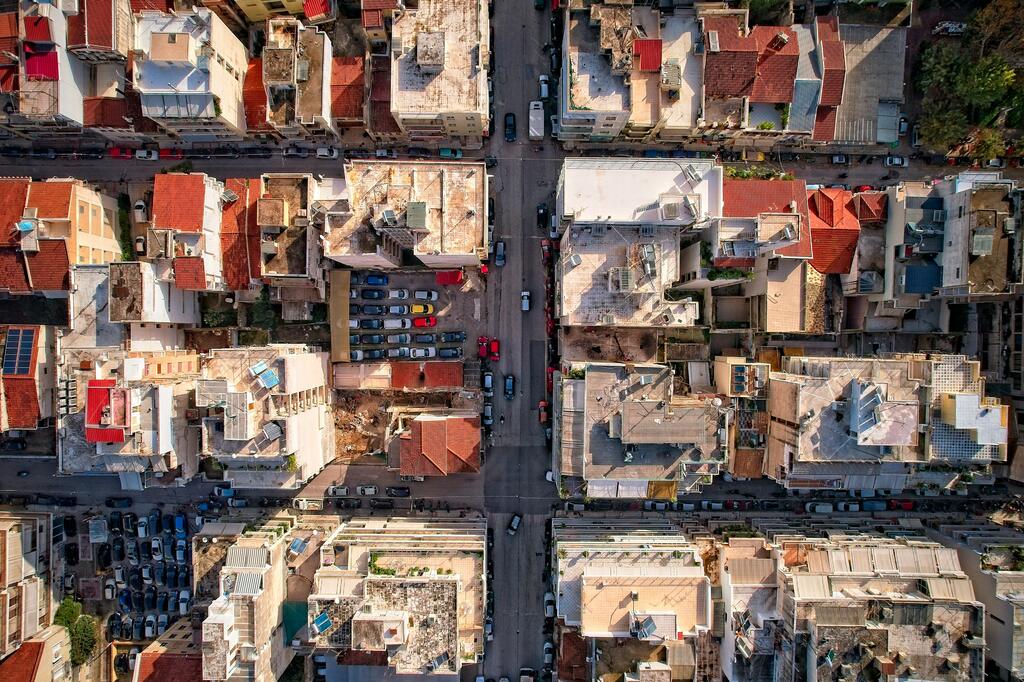
What is the Greek Culture Like?
Greek culture is a blend of ancient history, vibrant traditions, and modern flair. It’s lively, colorful, and full of amazing food! Here’s a peek into what makes Greece so special.
Community and Family: Family is at the heart of Greek culture. Greeks are very family-oriented, and social life often revolves around family gatherings and meals.
Food and Dining: Greek cuisine is fresh, flavorful, and a central part of social life. You’ll find dishes like moussaka, souvlaki, and an array of mezes (small dishes) that are perfect for sharing.
Hospitality: Known as “filoxenia,” Greek hospitality is legendary. Greeks are known for being incredibly welcoming and generous to guests.
Festivals and Celebrations: Greece loves a good celebration. From religious festivals to local village parties, there’s always something to celebrate. Music, dancing, and food are key elements of these festivities.
Coffee Culture: Coffee is a big deal in Greece. Greek coffee is strong and thick, and drinking it is a social activity.
Art and History: From the Acropolis in Athens to the ruins of Delphi, the country is full of historical sites. Modern Greek culture also has a vibrant art scene, with contemporary galleries and lots of street art.
Music and Dance: Music and dance are integral to Greek culture. Traditional music features instruments like the bouzouki, and folk dances are performed at festivals and celebrations.
Language: The Greek language has a long history and is an important part of the culture. Even though many Greeks speak English, learning a few Greek phrases can go a long way in connecting with locals. I’ve added 40 essentials greek phrases below.
Religion: The Greek Orthodox Church plays a significant role in the cultural and spiritual life of Greece. Many of the country’s holidays and traditions are rooted in religious practices.

👉 You might also find these articles interesting:
– Malta Digital Nomad Visa
– Turkey Digital Nomad Visa
– Costa Rica Digital Nomad Visa
– Digital Nomad Visa Japan
– Top 10 Digital Nomad Friendly Countries
40 Essential Phrases in Greek
- Yia – Hello
- Kalimera – Good morning
- Kalispera – Good evening
- Antio or Yia sas – Goodbye (Antio is more formal, Yia sas is casual)
- Parakalo – Please
- Efharisto – Thank you
- Ne – Yes
- Ohi – No
- Signomi – Excuse me
- Borite na me voithisete? – Can you help me?
- Pou ine i toualeta? – Where is the bathroom?
- Poso kostizi? – How much is this?
- Poli akrivo – That’s too expensive
- Nero – Water
- Allo ena, parakalo – One more, please
- Logariasmo, parakalo – Check, please (when you are ready to pay at a restaurant)
- Pigenete me edo, parakalo – Take me here, please (useful in taxis)
- Ti ine afto? – What is this?
- Den milao Ellinika – I don’t speak Greek
- Kali mera – Have a good day
- Den katalaveno – I don’t understand
- Mporis na milisis…? – Can you speak…? (add “Anglika” for English, “Germanika” for German, etc.)
- Pinao – I’m hungry
- Dipsao – I’m thirsty
- Parakalo – You’re welcome (response to thank you)
- Pos se lene? – What’s your name?
- Me lene… – My name is…
- Hero poli – Nice to meet you
- Pos iste? – How are you?
- Ime kala, efharisto – I’m fine, thank you
- Poso diarkei? – How long does it take?
- Mporo na to paro apo edo? – Can I get this here?
- Iparhi sindesi? – Is there a connection? (often used for internet or transport)
- Iparhi ekptosi? – Is there a discount?
- Kaleste tin astynomia! – Call the police!
- Ine konta? – Is it close?
- Ine makria? – Is it far?
- Stin igia mas! – Cheers! (to toast when drinking)
- Klisto – Closed
- Anihto – Open
Do you consider traveling to Greece soon? Was this guide on the greek digital nomad visa helpful for you? Please let me know in the comments!
Thank you for reading and for making me part of your day! Yours, Lulu


